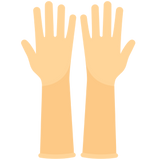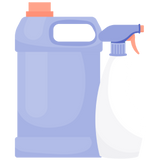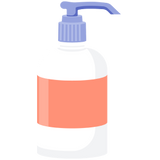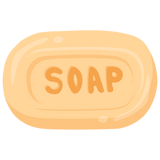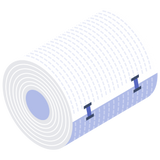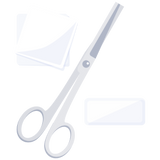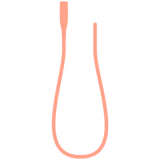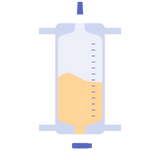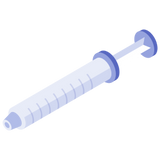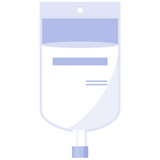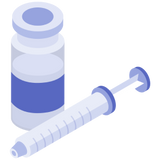
8 Tips to Accelerate Wound Healing Naturally
Posted by Pankaj Dhiman on May 7th 2024
Wounds are a common occurrence in our lives, ranging from minor cuts and scrapes to more serious injuries. Proper wound care is crucial not only for preventing infections but also for promoting faster healing. In this article, we'll explore eight effective tips to help your body heal wounds quickly and naturally.
1. Keep the Wound Clean
The first step in promoting wound healing is to keep the affected area clean. Wash your hands thoroughly with soap and water before touching the wound. Use a gentle cleanser and lukewarm water to clean the wound site, removing any dirt, debris, or bacteria. Avoid harsh scrubbing, which can further damage the tissue.
Shop Now: Wound Care Supplies
2. Apply Antiseptic
After cleaning the wound, apply a topical antiseptic to help prevent infection. Common antiseptics include hydrogen peroxide or povidone-iodine solution. These substances can kill bacteria and other pathogens on the wound surface, reducing the risk of complications during healing.
Must Read: Open Wound: Types, Treatments, and Complications
3. Protect with Bandages
Covering the wound with a sterile bandage or gauze helps keep it protected from dirt and bacteria, promoting faster healing. Change the bandage regularly, especially if it becomes wet or dirty. For larger wounds or those that are prone to friction, consider using special wound dressings designed to promote healing.
Must Read: 12 Best-Selling Wound Care Products in the US (2024)
4. Maintain Moisture Balance
Contrary to popular belief, keeping a wound too dry can impede healing. It's essential to maintain a moist environment around the wound to facilitate cell growth and tissue repair. Use hydrogel or petroleum-based ointments recommended by healthcare professionals to keep the wound adequately moist.
5. Eat a Nutritious Diet
Proper nutrition is key to supporting the body's healing processes. Ensure your diet includes adequate protein, vitamins (especially vitamin C and zinc), and minerals to promote tissue regeneration. Foods like lean meats, fruits, vegetables, and whole grains can provide essential nutrients needed for wound repair.
Must Read: 8 Simple Steps to Lower Triglycerides and Get Healthier
6. Stay Hydrated
Drinking plenty of water is vital for overall health and plays a crucial role in wound healing. Proper hydration helps maintain blood volume and circulation, delivering oxygen and nutrients to the wound site. Aim to drink at least eight glasses of water per day, or more if you are physically active.
Shop Now: Wound Dressings
7. Avoid Smoking and Alcohol
Smoking and excessive alcohol consumption can significantly impair wound healing. Nicotine restricts blood flow, reducing the supply of oxygen and nutrients to the wound area. Alcohol, on the other hand, weakens the immune system, making it harder for the body to fight off infections.
8. Get Adequate Rest
Lastly, allow your body ample time to rest and recover. Adequate sleep is essential for tissue repair and immune function. Avoid putting unnecessary strain on the wound by engaging in vigorous activities that may reopen or aggravate it.
Shop Now Professional Wound Care Supplies
The Bottom Line
By following these eight tips, you can support your body's natural healing processes and promote faster recovery from wounds. Remember, proper wound care is crucial to prevent complications such as infections and scarring. If you have concerns about a wound that is not healing properly, consult a healthcare professional for personalized advice.
FAQs
Q1: How long does it take for a wound to heal?
A: The healing time for a wound depends on various factors such as its size, depth, location, and your overall health. Minor wounds typically heal within a few days to a couple of weeks, while more significant wounds may take several weeks or months.
Q2: When should I see a doctor about a wound?
A: You should seek medical attention if the wound is deep, gaping, or shows signs of infection such as increased redness, swelling, pus, or persistent pain. Also, consult a doctor if you have underlying health conditions that may affect wound healing.
Q3: Is it normal for wounds to itch during healing?
A: Yes, mild itching is a common part of the healing process as the skin regenerates. However, excessive or worsening itching could indicate an allergic reaction or other issues, so it's best to consult a healthcare professional if concerned.
Q4: Can certain medical conditions affect wound healing?
A: Yes, underlying medical conditions like diabetes, poor circulation, or autoimmune disorders can impair wound healing. It's essential to manage these conditions with the help of a healthcare provider to promote proper healing.
Conclusion
Taking proactive steps to care for wounds can make a significant difference in the healing process. By following these tips and staying vigilant about wound care, you can support your body's ability to heal naturally. Remember, if you have any concerns or questions about wound care, don't hesitate to seek advice from a healthcare professional for personalized guidance.















